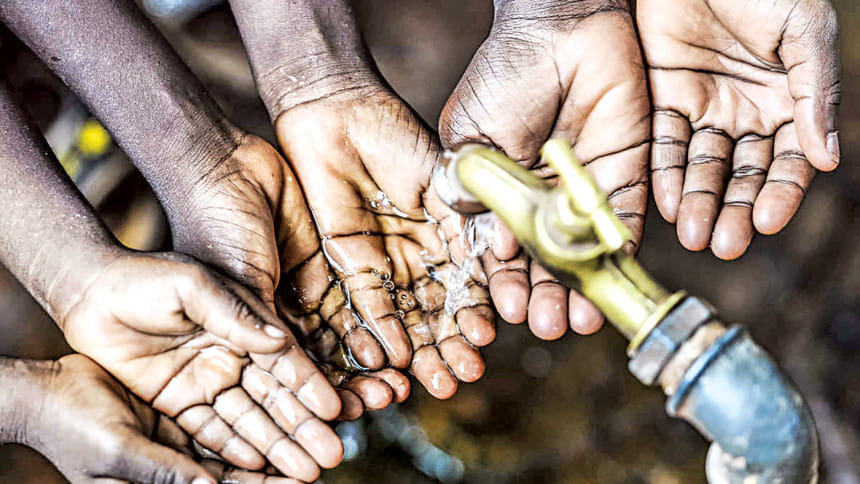Severe water crisis looming

Record temperatures are accelerating the rise of sea levels, melting glaciers and snow coverage and threatening the water supplies for billions, according to a major UN report yesterday charting the "increasing and irreversible" impacts of climate change.
The multi-agency United in Science report said the world had seen its warmest five years on record in the last five years, adding that extreme weather events bore "a clear fingerprint" of climate change.
It comes after UN chief Antonio Guterres told AFP that nations must use the coronavirus crisis as a springboard to implement "transformational" green policies to make energy, transport, industry and everyday life more sustainable.
If they fail, he warned humanity was "doomed".
The report, coordinated by the World Meteorological Organization (WMO), said humanity was not on track to meet the targets for emission reductions that would avert devastating global warming.
It highlighted "the increasing and irreversible impacts of climate change, which affects glaciers, oceans, nature, economies and human living conditions and is often felt through water-related hazards like drought or flooding".
Warmer temperatures have seen reductions in the world's glaciers and ice sheets, threatening fresh water supplies.
The United Nations' science advisory panel for climate change, the IPCC, has forecast that oceans will rise by up to a metre by the end of the century, and even more after that.
Hundreds of millions of people live in vulnerable coastal areas.
The new report said that between 2016 and 2019 glacier mass loss was greater than all past five-year periods since 1950, adding that sea-level rise was accelerating.
It said 1.2 billion people are currently at risk of flooding and predicted this will rise to 1.6 billion by 2050.
Meanwhile, water scarcity is set to increase, with up to 3.2 billion people predicted to live in areas with insufficient water by 2050, compared to 1.9 billion in the 2010s.
The loss of glaciers will severely impact access to freshwater, with annual runoff expected to peak at a global level by the end of the century and then decline.
But the report said Central Europe and the Caucasus region were at their peak now.
In the Tibetan Plateau -- where runoff from snow cover, glaciers and permafrost provides almost half of the regional river flow -- the peak is forecast between 2030 and 2050, threatening water access for 1.7 billion people.
That would affect the mighty Mekong river, for one, which originates in the plateau and threads south through six countries.
Earth's average surface temperature has gone up by one degree Celsius since the 19th century, enough to increase the intensity of droughts, heat waves and tropical cyclones.
The UN report said the last five year period would be the hottest on record and that trend was set to continue.

 For all latest news, follow The Daily Star's Google News channel.
For all latest news, follow The Daily Star's Google News channel. 



Comments